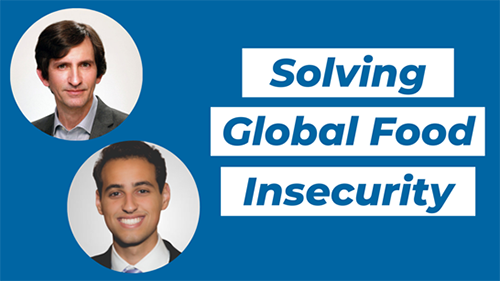
May 10, 2024 | Blog, Cross-Organizational Information Sharing, Knowledge Advantage, Knowledge Sharing Culture, Strategy
When we talk about an origin story, we naturally think of characters in great movies or captivating novels. We rarely think about businesses or organizations. Origin stories, when skillfully woven into an organization’s strategic communications in the defense sector, can pack an effective punch with key audiences.

Sep 7, 2022 | Blog, Human Organizational Systems, Knowledge Advantage, Strategy
In the summer of 2020, most MITRE employees opted to give up their permanent office with the intent of eventually working in the hybrid model – a few days per week onsite, and the remainder working remotely. As the pandemic showed signs of subsiding in the summer of 2021, many MITRE employees started to come back to the office a few days each week. For those without permanent offices, they relied on a new reservation system to book reservable offices for a day or even a partial day.

Aug 17, 2022 | Blog, Cross-Organizational Information Sharing, Knowledge Advantage, Knowledge Sharing Culture
In this episode of the MITRE Knowledge Driven Enterprise Podcast, Renee Rookwood, Healthcare Principal, shares her relationship with the concept of resilience and how it is applied to teams.

Dec 2, 2021 | Blog, Knowledge Advantage, Learning Organization, Machine Learning, Artificial Intelligence, and Data Science
Blockchain is everyone’s favorite buzz word. Whether it’s crypto currency or NFTs, the technology has been getting a lot of attention for how it could disrupt how we buy and interact. But MITRE’s own Jaya Tripathi sees a far more critical use for blockchain, tracking drugs. Listen in as she shares her vision of a brighter pharmaceutical future built on Blockchains.

Mar 7, 2021 | Analytic Tools, Blog, Knowledge Advantage
Approximately 2 billion people lack regular access to sufficient quality food. The issue of global food insecurity is one that is constantly being looked at and, fortunately, MITRE is stepping up to help mitigate this problem. Dr. David E. Willmes discusses his team’s project and how it uses significant crop and consumption data to better understand the factors at play in this global problem.

Aug 24, 2020 | Blog, Knowledge Advantage
I work as a DevOps Engineer. For a long time, I could not explain my career in a way that my mother could understand. She wanted to understand, but something as abstract and complex as DevOps can be hard for a lay person to grasp.
Eventually, I realized that my explanations focused only on the technical aspects of DevOps—the pipeline, automation, Infrastructure as Code—and not on the foundational principles of DevOps itself: Flow, Feedback, and Continuous Improvement. These three principles, called the Three Ways, I can explain to my mother by using her favorite hobby—baking—as a metaphor.

Mar 21, 2020 | Blog, Cross-Organizational Information Sharing, Knowledge Advantage, Learning Organization
MITRE’s talents for strategic modernization (e.g., enterprise planning, organizational change, business innovation, technology transitioning) are informed by both our explicit knowledge and our tacit knowledge. Explicit knowledge is what we objectively know. Explicit knowledge can be readily articulated, codified, stored and accessed, and transmitted to others, and represents an estimated 20% of our knowledge (e.g., plans, reports, data analysis). Implicit or tacit knowledge is more subjective.

Oct 16, 2017 | Blog, Knowledge Advantage, Machine Learning, Artificial Intelligence, and Data Science
It’s both less scary and more thrilling than you might think—and we’ve been living with nascent versions of machine learning for some time in the form of cognitive assistance tools. Spellcheck, for example, and the suggestions for replies that Gmail now displays are...

Jul 17, 2017 | Blog, Cross-Organizational Information Sharing, Intranets, Business Process, and Knowledge Operations, Knowledge Advantage
As the author of this post observes, there’s an emotional component to the exchange of knowledge via games that goes beyond just having fun. Serious games may increase loyalty, engagement, and participation in tasks.—Editor Author: Michael PackPlaying games is one of...









